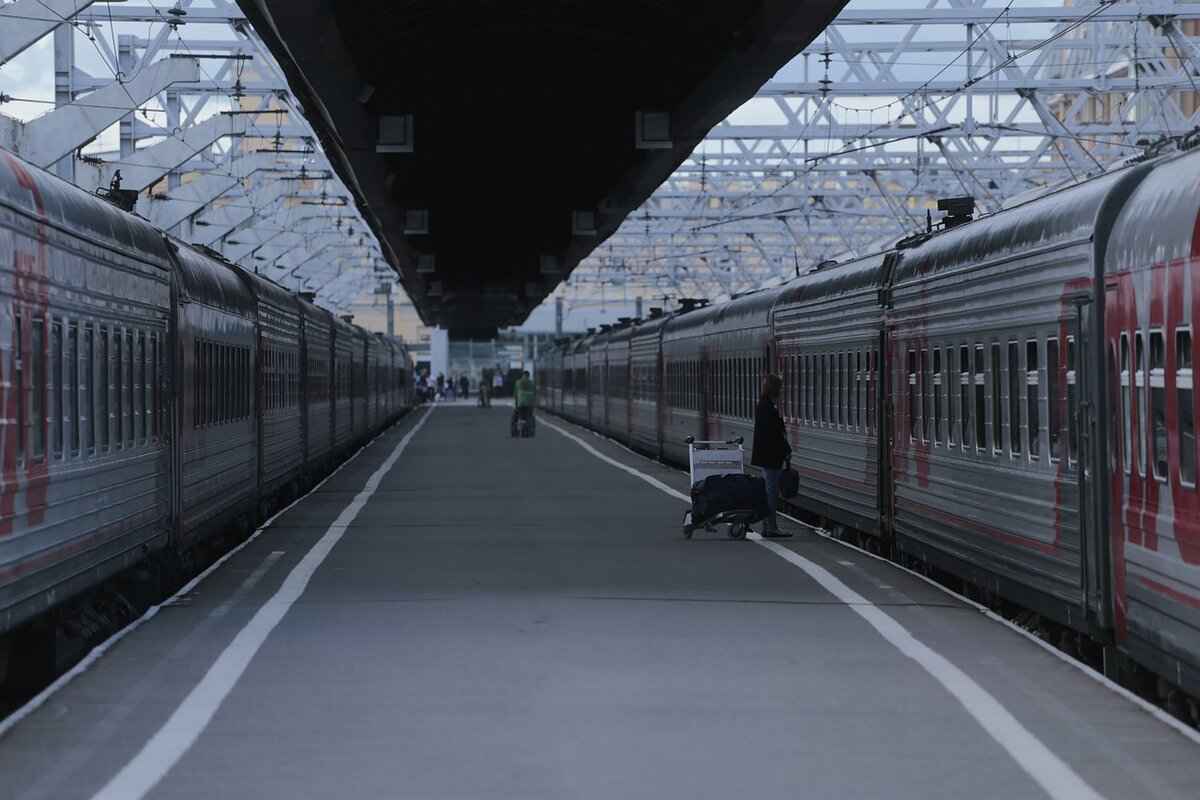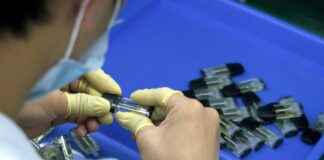This article delves into the historical significance, architectural marvels, and cultural impact of Howrah Railway Station, emphasizing its status as a vital transportation hub in India.
Historical Background of Howrah Railway Station
Howrah Railway Station, inaugurated in 1854, stands as a testament to the evolution of the Indian railway system. It has played a pivotal role in connecting major cities across the nation, facilitating trade and travel for millions. Its establishment marked a significant milestone in India’s transportation history, reflecting the country’s rapid industrialization during the British colonial era.
Architectural Features of Howrah Railway Station
The station is renowned for its remarkable architectural elements, including a grand facade, a massive clock tower, and intricate ironwork. These features showcase a unique blend of colonial and Indian architectural styles, making it a visual delight for visitors.
Design and Structure
The design of Howrah Railway Station is a marvel in itself, featuring a unique layout that accommodates hundreds of trains and serves thousands of passengers daily. This efficient design is crucial in managing the heavy footfall the station experiences.
Materials Used in Construction
The use of steel and brick in its construction highlights the engineering prowess of the time, contributing to both its durability and aesthetic appeal. These materials have allowed the station to withstand the test of time while retaining its historical essence.
Renovations and Upgrades
Over the years, Howrah Station has undergone several renovations aimed at modernizing facilities while preserving its historical charm. These upgrades ensure that the station meets contemporary transportation needs without losing its unique character.
Significance in Indian Railways
As one of the busiest railway stations in India, Howrah plays a crucial role in the country’s railway network. It facilitates trade and travel across regions, serving as a lifeline for many and contributing significantly to the economy.
Cultural Importance of Howrah Railway Station
Beyond its functional role, Howrah Railway Station serves as a cultural landmark, embodying the spirit of Kolkata. It acts as a gateway for millions of travelers each year, reflecting the vibrant traditions and customs of the local community.
Howrah Station in Literature and Art
The station has inspired numerous literary works and artistic expressions, symbolizing the hustle and bustle of urban life in Kolkata. Its presence in various forms of media highlights its significance in the cultural landscape of the city.
Festivals and Events at Howrah Station
Howrah Station often hosts various cultural events and festivals, showcasing the vibrant traditions of the local community. These events not only celebrate local culture but also enhance the station’s role as a community hub.
Passenger Experience at Howrah Railway Station
The experience of passengers at Howrah Station is shaped by its facilities, services, and overall atmosphere. The station is designed to cater to a diverse range of travelers, making it a unique travel hub.
Facilities Available for Travelers
Howrah Station offers a variety of facilities, including waiting areas, food stalls, and ticket counters, ensuring a comfortable experience for travelers. These amenities play a crucial role in enhancing passenger satisfaction.
Challenges Faced by Passengers
Despite its grandeur, passengers often face challenges such as overcrowding and delays. These issues highlight the need for continuous improvements in infrastructure and services to enhance the overall travel experience.
The Future of Howrah Railway Station
Looking ahead, Howrah Railway Station is set to undergo further developments aimed at enhancing its capacity and modernizing its facilities while retaining its historical charm. These initiatives will ensure that the station continues to serve as a vital transportation hub for years to come.

Historical Background of Howrah Railway Station
Howrah Railway Station, inaugurated in 1854, stands as a testament to the rich history of India’s railway network. This iconic station not only serves as a vital transportation hub but also reflects the cultural and economic evolution of the region. Its establishment marked a significant milestone in the development of railways in India, connecting major cities and facilitating trade and travel.
The station’s historical significance is deeply intertwined with the growth of Kolkata, formerly known as Calcutta, which was the capital of British India until 1911. As one of the oldest railway stations in the country, Howrah Railway Station has witnessed numerous changes over the decades, adapting to the growing demands of passengers and freight services. The station’s location along the banks of the Hooghly River has made it a strategic point for commerce and communication.
Over the years, Howrah Railway Station has become a symbol of resilience and progress. It has played a crucial role in the Indian independence movement by facilitating the movement of people and goods across the country. The station witnessed historical events, including the partition of India in 1947, when it became a transit point for millions of refugees.
Today, Howrah Railway Station is one of the busiest railway stations in India, handling approximately 1,000 trains and over 1,000,000 passengers daily. Its architectural grandeur, featuring a blend of colonial and Indian styles, continues to attract visitors and historians alike. The station’s massive clock tower and intricate ironwork are not just functional but also serve as a reminder of the engineering marvels of the past.
In conclusion, the historical background of Howrah Railway Station is a reflection of India’s journey through time, showcasing its role in the evolution of the railway system and its impact on society. As it moves forward, the station remains committed to preserving its rich heritage while embracing modernization to serve future generations of travelers.

Architectural Features of Howrah Railway Station
Howrah Railway Station, one of India’s most iconic transportation hubs, is not just a functional facility but a masterpiece of architecture. The station’s design reflects a blend of colonial and Indian styles, creating a unique aesthetic that has captivated visitors for decades.
The station is renowned for its grand facade, which features a stunning array of decorative elements that enhance its visual appeal. The use of intricate ironwork is particularly noteworthy; it showcases the craftsmanship of the era and adds a layer of elegance to the overall design. This ironwork is not merely decorative but also serves functional purposes, supporting the structure while enhancing its beauty.
One of the most striking features of Howrah Railway Station is its massive clock tower. Standing tall, the clock tower serves as a landmark for travelers and symbolizes the station’s role as a central hub in Kolkata. It is an architectural highlight that combines utility with grandeur, reminding passengers of the importance of time in travel.
The layout of the station is designed to accommodate a high volume of traffic, with platforms that can handle hundreds of trains and thousands of passengers daily. This thoughtful design not only maximizes efficiency but also ensures a smooth flow of movement within the station.
In terms of materials, the station prominently features steel and brick, which were innovative choices at the time of construction. These materials contribute to the station’s durability while also allowing for intricate designs that enhance its overall aesthetic. The combination of these materials reflects the engineering prowess of the 19th century, making the station a lasting symbol of architectural brilliance.
Over the years, Howrah Railway Station has undergone several renovations aimed at modernizing its facilities while preserving its historical essence. These upgrades ensure that the station continues to meet contemporary transportation needs without compromising its unique character.
In conclusion, the architectural features of Howrah Railway Station not only highlight its historical significance but also showcase the rich cultural heritage of India. The blend of colonial and Indian styles, along with its impressive structural elements, makes it a must-visit landmark for anyone exploring Kolkata.
Design and Structure
The Howrah Railway Station is not just a transit point; it is a remarkable architectural achievement that stands as a testament to India’s rich railway heritage. The station’s design is a blend of functionality and aesthetics, allowing it to handle an impressive volume of traffic daily.
Its unique layout incorporates multiple platforms that can accommodate hundreds of trains and thousands of passengers at any given time. The station is designed in a way that ensures smooth movement and minimal congestion, which is crucial given the high footfall it experiences. The layout includes wide concourses, clearly marked signage, and multiple entry and exit points, facilitating efficient passenger flow.
One of the standout features of Howrah Railway Station is its grand facade, which showcases intricate colonial architecture. The massive clock tower, a prominent landmark, not only serves as a timekeeping device but also adds to the station’s majestic presence. The use of steel and brick in its construction highlights the engineering prowess of the era, ensuring durability while also enhancing the aesthetic appeal.
Additionally, the station’s roof, made of iron, is an engineering marvel in itself. It spans a vast area, providing shelter to passengers while allowing natural light to filter through, creating a welcoming atmosphere. The design also incorporates ventilation systems that help in maintaining a comfortable environment, even during peak hours.
Over the years, Howrah Station has seen several renovations aimed at modernizing its facilities without compromising its historical essence. These upgrades include the addition of digital information boards, improved waiting areas, and enhanced security measures, making it a more user-friendly space for travelers.
In conclusion, the design and structure of Howrah Railway Station not only reflect its historical significance but also its adaptability to modern needs. As it continues to evolve, the station remains a vital part of India’s transportation network, symbolizing the country’s progress and commitment to connectivity.
Materials Used in Construction
The construction of Howrah Railway Station is a testament to the innovative engineering techniques of the 19th century. The predominant use of steel and brick in its architecture not only showcases the aesthetic appeal but also emphasizes its structural integrity and durability.
Steel, known for its strength and flexibility, was a revolutionary material during the time of the station’s construction. It allowed for the creation of expansive open spaces within the station, facilitating the movement of large crowds and multiple trains simultaneously. The incorporation of steel in the beams and frameworks of the station has significantly contributed to its ability to withstand the test of time and the elements.
On the other hand, brick has long been a favored building material due to its thermal properties and longevity. The use of locally sourced bricks in the station’s construction not only reflects the regional architectural style but also enhances its visual appeal. The warm tones of the brickwork complement the industrial elements of steel, resulting in a harmonious blend of materials that is both functional and attractive.
Moreover, the combination of these materials highlights the engineering prowess of the era, as builders were able to create a structure that was not only practical but also visually striking. The intricate designs and detailing made possible by these materials add to the station’s historical significance, making it a landmark that captures the essence of its time.
In conclusion, the use of steel and brick in the construction of Howrah Railway Station is a remarkable example of engineering excellence. This combination has ensured its resilience and beauty, solidifying its status as one of India’s most iconic railway stations.
Renovations and Upgrades
Over the years, Howrah Railway Station has undergone numerous renovations and upgrades, reflecting a commitment to modernizing its facilities while maintaining its historical significance. These enhancements are essential in meeting the demands of contemporary transportation needs and improving passenger experience.
Initially established in 1854, Howrah Station has long been a pivotal hub in India’s railway network. As the station faced increasing passenger traffic, the need for renovations became apparent. The upgrades have included:
- Structural Reinforcements: To ensure safety and durability, the station has seen extensive structural reinforcements, incorporating modern engineering techniques.
- Modern Amenities: Facilities such as upgraded waiting areas, clean restrooms, and enhanced food courts have been introduced, significantly improving the comfort of travelers.
- Technological Advancements: The installation of digital displays for train schedules and ticketing systems has streamlined operations, making it easier for passengers to navigate the station.
- Accessibility Improvements: Enhancements for differently-abled passengers, including ramps and elevators, have been prioritized to ensure inclusivity.
The renovations have not only focused on functionality but also on preserving the station’s architectural heritage. Efforts have been made to retain the grand facade and intricate designs that define Howrah Station’s historical essence. This blend of the old and the new allows the station to serve as a symbol of Kolkata’s rich history while catering to modern transportation needs.
As Howrah Railway Station continues to evolve, it remains a testament to the importance of balancing heritage conservation with the necessity for modernization. Future upgrades are expected to further enhance its capacity and efficiency, ensuring that it remains one of India’s most iconic and functional railway stations.
Significance in Indian Railways
Howrah Railway Station is not just a transit point; it is a vital artery in the extensive railway network of India. As one of the busiest railway stations in the country, it plays an integral role in connecting various regions, facilitating the movement of both people and goods.
Established in 1854, Howrah Station has evolved alongside the Indian railway system, reflecting the growth and transformation of the nation. Its strategic location in Kolkata allows it to serve as a major hub for trains traveling to and from the eastern and northeastern parts of India. This connectivity is crucial for regional trade and commerce, enabling businesses to thrive and ensuring that essential goods reach their destinations efficiently.
Howrah Station is equipped to handle an impressive number of trains and passengers daily. With over 1,000 trains and approximately 1,000,000 passengers traversing its platforms each day, the station is a testament to the scale and importance of railway travel in India. The station’s infrastructure has been designed to accommodate this heavy traffic, featuring multiple platforms and extensive waiting areas.
Moreover, Howrah Railway Station serves as a gateway for tourists, offering access to various attractions in Kolkata and beyond. The station’s significance extends beyond transportation; it is a cultural landmark that embodies the spirit of the city. The bustling atmosphere reflects the diversity and vibrancy of Kolkata, making it an iconic symbol of urban life.
In conclusion, Howrah Railway Station is not merely a functional transit hub; it is a historical and cultural landmark that plays a crucial role in the Indian railway system. Its significance in facilitating trade, travel, and cultural exchange underscores its importance in the broader context of India’s development.

Cultural Importance of Howrah Railway Station
Howrah Railway Station is not merely a transportation hub; it is a cultural icon that encapsulates the essence of Kolkata. Serving as a vital gateway, the station welcomes millions of travelers each year, making it a bustling center of activity and a reflection of the city’s vibrant spirit.
As one of the oldest and busiest railway stations in India, Howrah Station has been a crucial part of Kolkata’s identity since its establishment in 1854. The station’s architecture, with its grand façade and towering clock, is a testament to the city’s colonial past while blending seamlessly with its modern-day hustle. This unique combination of history and progress makes the station a symbol of resilience for the people of Kolkata.
The station is also a melting pot of cultures, where people from various backgrounds converge. From local vendors selling traditional snacks to travelers sharing stories from different parts of the country, Howrah Station is alive with the diversity of Indian culture. It serves as a backdrop for countless interactions, making it an integral part of the social fabric of the city.
Moreover, Howrah Railway Station has been featured in numerous literary works and artistic expressions, symbolizing the hustle and bustle of urban life. Writers and artists often draw inspiration from the station’s dynamic atmosphere, capturing the essence of Kolkata’s relentless energy.
Throughout the year, the station hosts various festivals and events, showcasing the rich traditions and customs of the local community. These celebrations not only enhance the cultural significance of the station but also foster a sense of belonging among the residents of Kolkata.
In conclusion, Howrah Railway Station stands as a cultural landmark that embodies the spirit of Kolkata, serving as a gateway for millions while reflecting the city’s rich heritage and vibrant community life.
Howrah Station in Literature and Art
Howrah Railway Station, an iconic landmark in Kolkata, has not only served as a crucial transportation hub but has also become a rich source of inspiration for literary works and artistic expressions. Its bustling atmosphere and historical significance reflect the essence of urban life, capturing the imagination of writers, poets, and artists alike.
The station, established in 1854, has been a backdrop for numerous stories, symbolizing the hustle and bustle of city life. It has been depicted in various forms of literature, from novels to poetry, where it often represents the journey of life, the convergence of different paths, and the myriad of emotions experienced by travelers. Authors have used the station as a metaphor for transition and change, illustrating the myriad stories that unfold within its walls.
In the realm of art, Howrah Station has been a favorite subject for painters and photographers. Its grand architecture, featuring a magnificent facade and intricate ironwork, has been captured in countless artworks. Artists often depict the station’s vibrant energy, showcasing the diverse crowd of passengers and the dynamic environment that surrounds it. The interplay of light and shadow on its structure creates a captivating visual narrative that resonates with both locals and tourists.
Moreover, Howrah Station has been featured in films and documentaries, further solidifying its status as a cultural icon. It serves as a setting for stories that explore themes of hope, loss, and the human experience, making it a significant landmark not just in Kolkata, but in the broader context of Indian culture.
In conclusion, Howrah Railway Station stands as a testament to the rich tapestry of literary and artistic expressions that celebrate urban life. Its enduring influence continues to inspire new generations of creators, ensuring that its legacy as a cultural landmark remains vibrant and relevant.
Festivals and Events at Howrah Station
Howrah Railway Station, a bustling hub of activity, is not just a transit point for millions; it is also a vibrant cultural epicenter that hosts a variety of festivals and events throughout the year. These celebrations reflect the rich traditions and customs of the local community, making the station a living testament to Kolkata’s diverse cultural heritage.
- Durga Puja Celebrations: One of the most significant festivals in West Bengal, Durga Puja sees the station adorned with beautiful decorations, and cultural performances are often held in the vicinity, inviting travelers to partake in the festivities.
- Poila Baisakh: The Bengali New Year is celebrated with great enthusiasm at Howrah Station, where local artists perform traditional music and dance, creating a lively atmosphere that welcomes the new year.
- Christmas and New Year: During the holiday season, the station is beautifully lit, and special events are organized, including carol singing and festive markets, providing a joyful experience for passengers and visitors alike.
- Book Fairs: Occasionally, the station hosts book fairs that promote local literature and authors, encouraging reading among travelers and offering them a chance to engage with the literary community.
These events not only enhance the travel experience but also foster a sense of community among passengers. The vibrant atmosphere created during these festivals showcases the unity and diversity of the people of Kolkata, making Howrah Railway Station a symbol of cultural pride.
In conclusion, Howrah Railway Station serves as more than just a gateway to the city; it is a dynamic space where culture and tradition come alive. The festivals and events held here are a reflection of the local spirit, making each visit a memorable experience for travelers from all walks of life.

Passenger Experience at Howrah Railway Station
The experience of passengers at Howrah Station is a multifaceted journey, influenced by its extensive facilities, efficient services, and the overall atmosphere that characterizes this historic travel hub. As one of the busiest railway stations in India, Howrah Station plays a crucial role in the daily lives of millions, making the passenger experience a vital aspect of its operations.
- Facilities Available for Travelers
- Spacious waiting areas equipped with comfortable seating.
- A variety of food stalls offering local and international cuisine.
- Clean restroom facilities, ensuring hygiene for all passengers.
- Accessible ticket counters and information kiosks for assistance.
- Services Enhancing Passenger Comfort
- 24/7 security personnel ensuring passenger safety.
- Help desks staffed with friendly personnel for inquiries.
- Wi-Fi services for connectivity while waiting for trains.
- Mobile charging stations conveniently located throughout the station.
- Challenges Faced by Passengers
- Overcrowding during peak hours can lead to discomfort.
- Delays in train schedules causing frustration among travelers.
- Limited seating during busy travel seasons, affecting passenger experience.
- Need for better signage and information dissemination to assist travelers.
Despite these challenges, the overall atmosphere of Howrah Station is vibrant and dynamic. Passengers often find themselves immersed in the rich cultural tapestry of Kolkata, with street vendors, musicians, and artists adding to the lively environment. This unique blend of facilities and services, combined with the station’s historical significance, makes Howrah Railway Station not just a transit point, but a cultural landmark in its own right.
In conclusion, the passenger experience at Howrah Railway Station is continuously evolving, with ongoing efforts to enhance its infrastructure and services. As the station adapts to the growing needs of travelers, it remains a vital hub that connects people and cultures across India.
Facilities Available for Travelers
Howrah Railway Station is not just a transit point; it is a bustling hub that caters to millions of travelers every day. To enhance the passenger experience, the station is equipped with a variety of facilities designed for comfort and convenience.
- Waiting Areas: The station features multiple waiting areas that are spacious and well-maintained. These areas are equipped with comfortable seating, allowing passengers to relax while waiting for their trains.
- Food Stalls: A diverse range of food stalls and eateries is available, offering everything from local delicacies to international cuisine. Travelers can enjoy a meal or a quick snack, ensuring they are well-fed for their journey.
- Ticket Counters: Numerous ticket counters are strategically placed throughout the station, making it easy for passengers to purchase tickets or seek assistance. Self-service kiosks are also available for added convenience.
- Restrooms: Clean and accessible restrooms are located throughout the station, providing necessary facilities for travelers.
- Information Desks: Information desks staffed by knowledgeable personnel are available to assist passengers with inquiries about train schedules, platforms, and other travel-related questions.
- Wi-Fi Connectivity: Free Wi-Fi is accessible in various areas of the station, allowing travelers to stay connected and plan their journeys effectively.
- Accessibility Features: The station is equipped with ramps and elevators to assist passengers with disabilities, ensuring that everyone can navigate the facilities with ease.
In summary, Howrah Railway Station prioritizes the comfort and convenience of its travelers by offering a range of essential facilities. This commitment to passenger satisfaction contributes significantly to its reputation as one of India’s busiest and most historic railway stations.
Challenges Faced by Passengers
Howrah Railway Station, despite its historical significance and architectural beauty, presents several challenges for passengers. As one of the busiest railway stations in India, it serves millions of travelers each year. However, the sheer volume of passengers often leads to issues that impact the overall travel experience.
- Overcrowding: The station frequently experiences severe overcrowding, particularly during peak hours and festive seasons. This not only makes it difficult for passengers to navigate but also raises safety concerns.
- Delays: Train delays are another common issue. Factors such as weather conditions, operational inefficiencies, and track maintenance can lead to significant wait times, frustrating travelers who rely on punctuality.
- Insufficient Facilities: Although the station has made strides in upgrading its amenities, many areas still lack adequate facilities. Clean waiting areas, sufficient seating, and accessible restrooms are often in short supply, making the travel experience less comfortable.
- Security Concerns: With high passenger volume, ensuring safety and security becomes challenging. Instances of petty crime can occur, leading to a need for enhanced security measures and vigilance.
- Inadequate Signage: New passengers, especially those unfamiliar with the station, may find it difficult to navigate due to insufficient signage. Clear directions and information are essential for a smooth travel experience.
These challenges underscore the necessity for continuous improvements in both infrastructure and services at Howrah Railway Station. Addressing these issues not only enhances passenger satisfaction but also preserves the station’s reputation as a vital transportation hub in India.

The Future of Howrah Railway Station
As one of India’s most significant transportation hubs, Howrah Railway Station is on the brink of a transformative journey. Looking ahead, the station is set to undergo a series of comprehensive developments designed to enhance its capacity and modernize its facilities, all while preserving its historical charm.
With the increasing demand for rail travel, the need for expansion has become paramount. Future plans include:
- Increased Platform Capacity: The station aims to expand its platforms to accommodate more trains, reducing congestion and improving overall efficiency.
- Modern Amenities: Upgraded waiting areas, improved restroom facilities, and enhanced food courts will be introduced to provide a more comfortable experience for travelers.
- Smart Technology Integration: Implementation of digital ticketing systems and real-time updates on train schedules will streamline passenger flow and enhance convenience.
- Accessibility Improvements: Enhanced facilities for differently-abled passengers will ensure that the station is inclusive and user-friendly for all.
Moreover, the architectural integrity of the station will be preserved. The iconic facade and historical elements will be carefully maintained during renovations, ensuring that the rich heritage of Howrah Railway Station remains intact.
As the station evolves, it is expected to become a model for modern railway stations in India, blending contemporary design with historical significance. This balance will not only serve the practical needs of millions of passengers but also celebrate the cultural heritage of Kolkata.
In conclusion, the future of Howrah Railway Station looks promising. With planned enhancements that prioritize both functionality and historical preservation, it is poised to remain a vital landmark in India’s railway network for generations to come.
Frequently Asked Questions
- What is the historical significance of Howrah Railway Station?
Howrah Railway Station, established in 1854, is a symbol of India’s railway evolution. It connects major cities and reflects the rich history of transportation in India.
- What architectural features make Howrah Railway Station unique?
The station is renowned for its grand facade, massive clock tower, and intricate ironwork, showcasing a beautiful blend of colonial and Indian architectural styles.
- How does Howrah Railway Station accommodate so many passengers?
With a unique design and structure, the station can handle hundreds of trains and thousands of passengers daily, making it one of the busiest railway stations in India.
- What facilities are available for travelers at Howrah Station?
Travelers can enjoy a range of facilities, including waiting areas, food stalls, and ticket counters, all aimed at ensuring a comfortable experience.
- What challenges do passengers face at Howrah Railway Station?
Despite its grandeur, passengers often deal with overcrowding and delays, which highlight the ongoing need for improvements in infrastructure and services.
- What is the future of Howrah Railway Station?
Looking ahead, Howrah Railway Station is set for further developments that aim to enhance its capacity and modernize facilities while preserving its historical charm.














